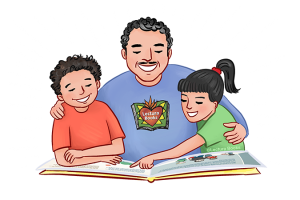Students learn when the information is comprehensible, says OSPI, the Office of Superintendent of Public Instruction about teaching English Language Learners (ELLs).
They also require quality second language acquisition techniques and activities that make the information and language comprehensible. In addition, ELLs should be placed in classes with competent and sensitive teachers who will provide easy-to-understand instruction using a variety of strategies, it says.
Because bilingual students have all-too-often been mistakenly put in special education over the years, a myth was being perpetuated that many of them actually had disabilities, says a Policy Research Brief by the National Council of Teachers of English. However, strong and accurate research now indicates that assessments were not accurately differentiating between linguistic differences and disabilities, hence the misdiagnoses, it says. Hopefully, they are a thing of the past.
The article “Keys to Success for English Language Learners” suggests assigning a “buddy” to new bilingual students. The native English speakers selected should be strong in nature (but with the ability to be patient and kind to the ELL) and can assist greatly in helping ELLs become acquainted with the class. Seat them next to one another and allow the ELL to ask questions during the class when necessary. Though, make sure that students selected don’t themselves get stressed when class time gets interrupted. So, ask them to make a note of anything they may have missed, allowing a few minutes after class for that student to ask questions about the covered material.
Due to the lack of time in the average classroom, a parental involvement program like The Latino Family Literacy Project can help tremendously in giving support to Latino ELLs. Through just a one-day, program training at a workshop in their area or via an online webinar, the organization trains teachers on guiding parents in setting up a reading routine using bilingual books.
Teaching ELLs basically takes a village and family outreach programs like The Project helps them in grasping and eventually becoming fluent in English to assist them in leading full and meaningful lives. For more information, please contact The Project.

